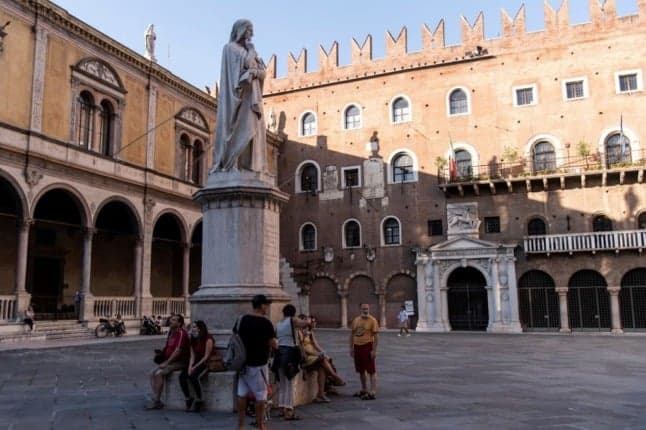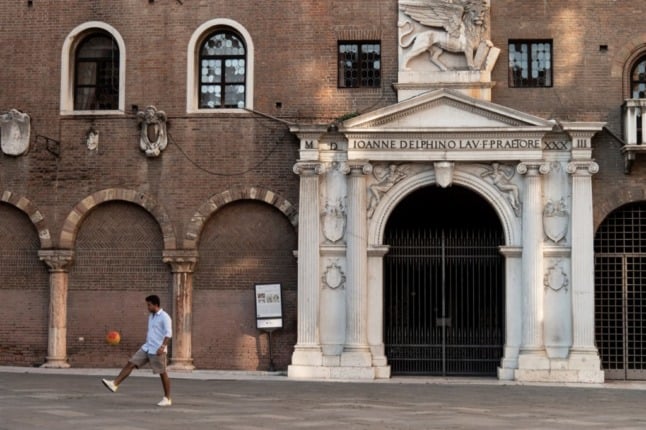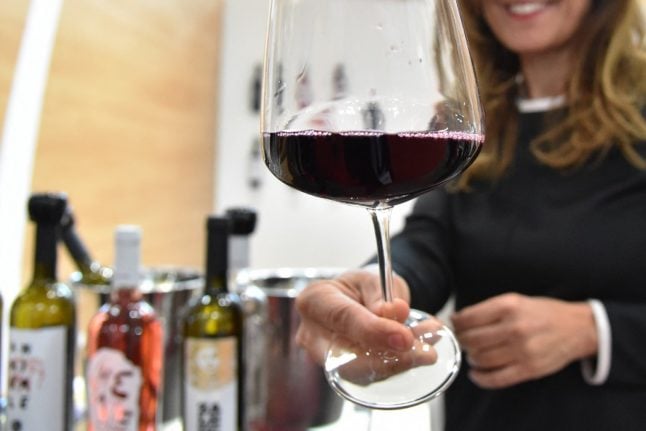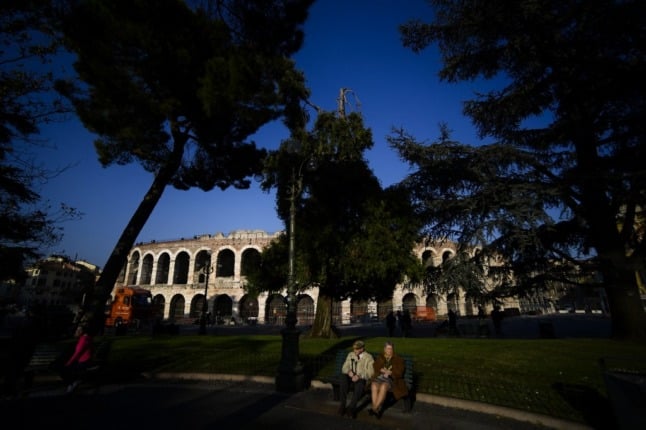Travel: Why Verona should be the next Italian city you visit

From opera at the Roman-era Arena to the kitsch-romance of Juliet’s Balcony, Verona’s star attractions are well known. But here are a few other reasons to put the city at the top of your list for your next trip to Italy, according to writer Richard Hough who has lived in the city for the past ten years.
The beautiful game
While Verona’s most famous football club has a well-documented association with the far-right, the truth is that taking in a game at the Bentegodi is a fun, family-friendly and relatively inexpensive day out – an occasion not to be missed for any sports fan.
Hellas Verona is now in its third straight season in Serie A - a feat not achieved since the glory days of the 1980s when the GialloBlu actually won the Scudetto - and the team is playing an intensive brand of offensive football (or at least they were last season). Enjoy a pre-match beer with the locals in one of the many bars or kiosks around the stadium and a mouthwatering panino con salsiccia e peperoni from one of the trucks outside the famous Curva Sud.
Tickets are cheap and not generally hard to come by, though at the time of writing Covid-related restrictions for the 2021/22 season have not yet been announced.
 Photo: Marco Bertorello/AFP
Photo: Marco Bertorello/AFP
An abundance of wine
For sheer volume, Veneto is the biggest wine-producing region in Italy, producing four times as much of the stuff as Tuscany. It’s little wonder then that wine is cheap and plentiful in Verona.
It gets better, as the quality of the local wine on offer is also extremely high, with 18% of all Italian DOC wines (the quality assurance label for Italian wine) produced in the region compared to 17% in Tuscany and 11% in Piedmont.
Names to look out for include the regal Amarone della Valpolicella, the rich white Soave and Bardolino, a cheeky and easy-drinking red which bears the name of the pretty lakeside resort where it originates.
Yet more wine
Verona is also something of a mecca for wine-related fairs and festivals. Vinitaly, which is held in Verona every April, is one of the biggest wine fairs in the world, though it’s now principally targeted towards the trade audience. Instead, look out for one of the smaller events that take place throughout the year, such as Hostaria Verona, when local wineries present their offerings to the city at harvest time (October), and Vinitaly and the City, the offshoot festival in April which boasts four days of tastings, meetings and events in the heart of the Verona.
Look out also for the Festa dell’Uva e del Vino Bardolino, which takes place on the banks of Lake Garda in October to celebrate the local harvest. A more recent development is the explosion in the number of cena in vigna [dinner amongst the vines] style events, an increasingly popular way to experience local wine and cuisine in a truly intoxicating setting.
READ ALSO: The truth about Juliet's balcony in Verona – and why it's still worth a visit

Tasting local wines at Vinitaly. Photo: Vincenzo Pinto/AFP
Sundays along the river
While the River Adige snakes its way around the old town and its twelve (by my calculation) bridges provide a constant reference point as you navigate your way around the city, one of the best things that happens in Verona is the regular closure to traffic of the road that runs alongside the river.
It’s closed every Sunday, transforming it into a safe-haven for cyclists, roller-bladers and joggers, if only for a day. From the bridge at Castelvecchio you can follow the river all the way to the dam at Chievo, before returning to the city centre along the footpath on the opposite bank. The perfect way to burn some calories and build up an appetite for Sunday lunch! Speaking of which…
A carnivore’s heaven
Like all Italians, the Veronese are fiercely proud of their local culinary specialties, and for the locals it doesn’t get any better than bollito di carni miste con Pearà (mixed boiled meat with a peppery bread sauce). This is the dish that the Veronese grew up eating on a Sunday lunchtime at their grandma’s, so they have a pathological affection for it. Another favourite from nonna’s kitchen table is the famed Tortellini di Valeggio in brodo.
Valeggio sul Mincio is a delightful town about 25 kilometres southwest of Verona. Just below Lake Garda, it is well worth a day trip, and not just for the delicious local pasta. The meat-filled tortellini from Valeggio are amongst the best in Italy and, served with a simple watery-broth, this is another Veronese classic.
READ ALSO: ‘Verona’s carnival has to be experienced – just don’t forget your wallet’

People sit in front of the 1st Century Arena di Verona Roman amphitheatre in Verona. Photo: Filippo Monteforte/AFP
Finally, a special mention for that most Veronese specialty that won’t necessarily appeal to all tastes – horse. Carne di cavallo, as horsemeat is known, alongside donkey and mule meat has long been popular in Verona. The most typical dish is pastissàda, a horse meat stew marinated in red wine (preferably Amarone) and cooked with plenty of onions. Legend has it that the recipe originated after an ancient battle. Rather than leaving the stricken horses to slowly rot on the field, they were butchered and cooked in the local wine. Mmmmm!
Look out for butchers specializing in equine meat and for other common uses of horsemeat, which include polpette (meatballs) and bigoli col musso or bigoli al ragù d’asino, a tasty pasta dish with donkey or mule meat. Osteria al Carega, Trattoria La Molinara and Ristorante Torcolo are three of the best places in the city to sample some quality local cuisine.
Take to the ramparts
Verona’s ancient walls are another of its many architectural treasures. Originally constructed in Roman times, over the centuries they’ve been extended, supplemented and enhanced, most notably by the medieval lords of the Della Scalla family and, more recently, by the Austrians when Verona was a military outpost of the Habsburg Empire.
Today you can catch glimpses of the surprisingly well-preserved fortifications, gateways and bastions all across the city, and they now provide a distinct green belt around the city (particularly around the San Zeno and the northern quarters). This year they even have their very own festival (the Mura Festival), a series of daily events at various locations along the wall.
Explore the region
In the unlikely event that you grow tired of the city, Verona is an ideal base to explore the other parts of north-eastern Italy.
The shores of Lake Garda are little more than 40 minutes away and Venice is short hop on the train. On top of that, less-well known cities like Brescia, Vicenza, Modena and Mantova are within easy reach, as well, of course, as Parma, Ferrara and Bologna.
Richard Hough has lived in Verona since September 2011 and writes about the region’s history, football, wine and culture. His new book, Rita’s War, a true story of persecution, resistance and heroism from wartime Italy, is available here. He is currently writing his next book about wartime Verona.
Comments (1)
See Also
The beautiful game
While Verona’s most famous football club has a well-documented association with the far-right, the truth is that taking in a game at the Bentegodi is a fun, family-friendly and relatively inexpensive day out – an occasion not to be missed for any sports fan.
Hellas Verona is now in its third straight season in Serie A - a feat not achieved since the glory days of the 1980s when the GialloBlu actually won the Scudetto - and the team is playing an intensive brand of offensive football (or at least they were last season). Enjoy a pre-match beer with the locals in one of the many bars or kiosks around the stadium and a mouthwatering panino con salsiccia e peperoni from one of the trucks outside the famous Curva Sud.
Tickets are cheap and not generally hard to come by, though at the time of writing Covid-related restrictions for the 2021/22 season have not yet been announced.

An abundance of wine
For sheer volume, Veneto is the biggest wine-producing region in Italy, producing four times as much of the stuff as Tuscany. It’s little wonder then that wine is cheap and plentiful in Verona.
It gets better, as the quality of the local wine on offer is also extremely high, with 18% of all Italian DOC wines (the quality assurance label for Italian wine) produced in the region compared to 17% in Tuscany and 11% in Piedmont.
Names to look out for include the regal Amarone della Valpolicella, the rich white Soave and Bardolino, a cheeky and easy-drinking red which bears the name of the pretty lakeside resort where it originates.
Yet more wine
Verona is also something of a mecca for wine-related fairs and festivals. Vinitaly, which is held in Verona every April, is one of the biggest wine fairs in the world, though it’s now principally targeted towards the trade audience. Instead, look out for one of the smaller events that take place throughout the year, such as Hostaria Verona, when local wineries present their offerings to the city at harvest time (October), and Vinitaly and the City, the offshoot festival in April which boasts four days of tastings, meetings and events in the heart of the Verona.
Look out also for the Festa dell’Uva e del Vino Bardolino, which takes place on the banks of Lake Garda in October to celebrate the local harvest. A more recent development is the explosion in the number of cena in vigna [dinner amongst the vines] style events, an increasingly popular way to experience local wine and cuisine in a truly intoxicating setting.
READ ALSO: The truth about Juliet's balcony in Verona – and why it's still worth a visit

Sundays along the river
While the River Adige snakes its way around the old town and its twelve (by my calculation) bridges provide a constant reference point as you navigate your way around the city, one of the best things that happens in Verona is the regular closure to traffic of the road that runs alongside the river.
It’s closed every Sunday, transforming it into a safe-haven for cyclists, roller-bladers and joggers, if only for a day. From the bridge at Castelvecchio you can follow the river all the way to the dam at Chievo, before returning to the city centre along the footpath on the opposite bank. The perfect way to burn some calories and build up an appetite for Sunday lunch! Speaking of which…
A carnivore’s heaven
Like all Italians, the Veronese are fiercely proud of their local culinary specialties, and for the locals it doesn’t get any better than bollito di carni miste con Pearà (mixed boiled meat with a peppery bread sauce). This is the dish that the Veronese grew up eating on a Sunday lunchtime at their grandma’s, so they have a pathological affection for it. Another favourite from nonna’s kitchen table is the famed Tortellini di Valeggio in brodo.
Valeggio sul Mincio is a delightful town about 25 kilometres southwest of Verona. Just below Lake Garda, it is well worth a day trip, and not just for the delicious local pasta. The meat-filled tortellini from Valeggio are amongst the best in Italy and, served with a simple watery-broth, this is another Veronese classic.
READ ALSO: ‘Verona’s carnival has to be experienced – just don’t forget your wallet’

Finally, a special mention for that most Veronese specialty that won’t necessarily appeal to all tastes – horse. Carne di cavallo, as horsemeat is known, alongside donkey and mule meat has long been popular in Verona. The most typical dish is pastissàda, a horse meat stew marinated in red wine (preferably Amarone) and cooked with plenty of onions. Legend has it that the recipe originated after an ancient battle. Rather than leaving the stricken horses to slowly rot on the field, they were butchered and cooked in the local wine. Mmmmm!
Look out for butchers specializing in equine meat and for other common uses of horsemeat, which include polpette (meatballs) and bigoli col musso or bigoli al ragù d’asino, a tasty pasta dish with donkey or mule meat. Osteria al Carega, Trattoria La Molinara and Ristorante Torcolo are three of the best places in the city to sample some quality local cuisine.
Take to the ramparts
Verona’s ancient walls are another of its many architectural treasures. Originally constructed in Roman times, over the centuries they’ve been extended, supplemented and enhanced, most notably by the medieval lords of the Della Scalla family and, more recently, by the Austrians when Verona was a military outpost of the Habsburg Empire.
Today you can catch glimpses of the surprisingly well-preserved fortifications, gateways and bastions all across the city, and they now provide a distinct green belt around the city (particularly around the San Zeno and the northern quarters). This year they even have their very own festival (the Mura Festival), a series of daily events at various locations along the wall.
Explore the region
In the unlikely event that you grow tired of the city, Verona is an ideal base to explore the other parts of north-eastern Italy.
The shores of Lake Garda are little more than 40 minutes away and Venice is short hop on the train. On top of that, less-well known cities like Brescia, Vicenza, Modena and Mantova are within easy reach, as well, of course, as Parma, Ferrara and Bologna.
Richard Hough has lived in Verona since September 2011 and writes about the region’s history, football, wine and culture. His new book, Rita’s War, a true story of persecution, resistance and heroism from wartime Italy, is available here. He is currently writing his next book about wartime Verona.
Join the conversation in our comments section below. Share your own views and experience and if you have a question or suggestion for our journalists then email us at [email protected].
Please keep comments civil, constructive and on topic – and make sure to read our terms of use before getting involved.
Please log in here to leave a comment.